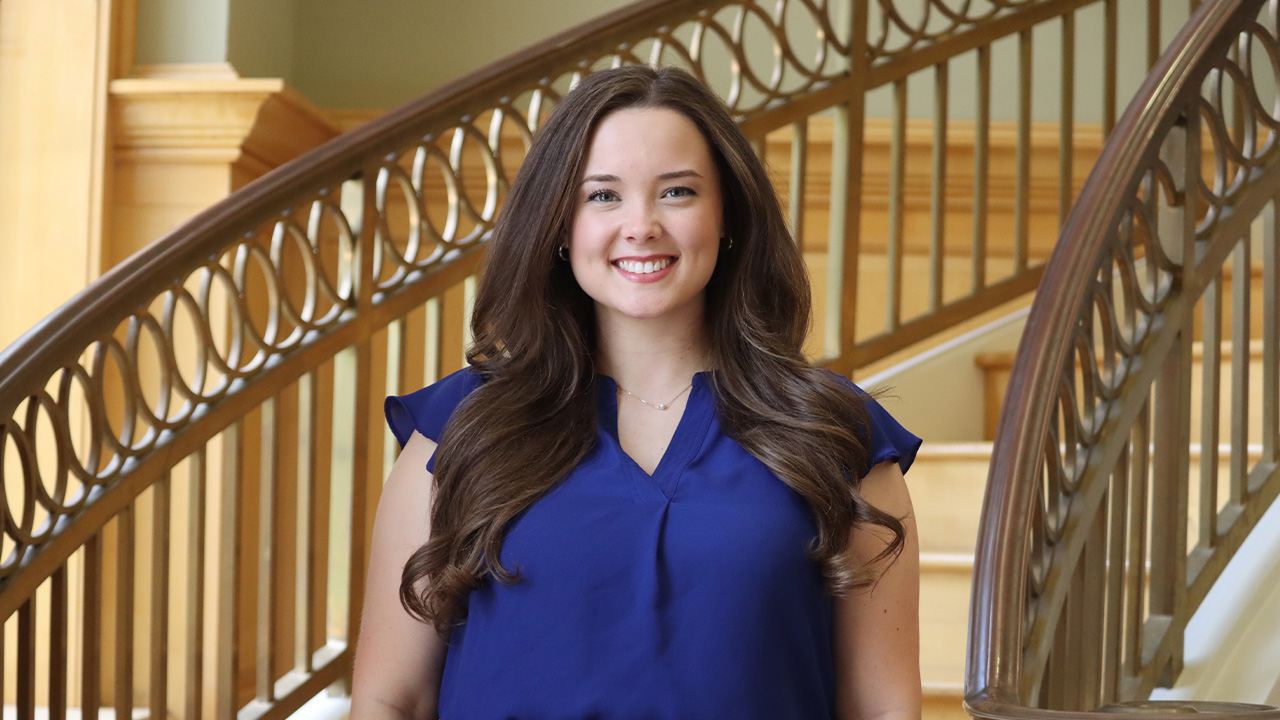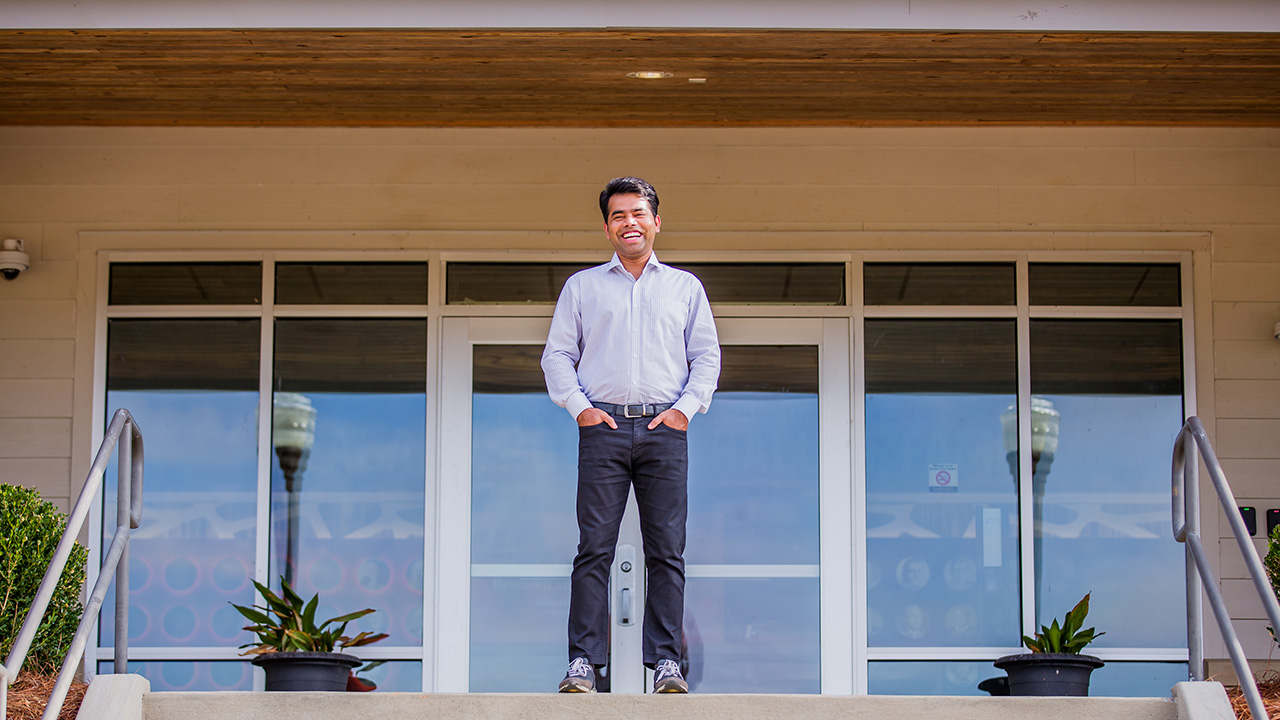content body

Having completed her bachelor’s and master’s degrees in poultry science at Auburn, Jackson is currently working toward her doctorate.
When Ally Jackson first came to Auburn, she felt at home — so much so that she stayed for three degrees. Having completed her bachelor’s and master’s degrees in poultry science on the Plains, Jackson is currently working toward a doctorate in poultry science.
Having grown up in south Alabama, Jackson always had an interest in pursuing a career in agriculture. It wasn’t until her neighbor, an Auburn alumnus and Alabama’s state veterinarian, encouraged her to pursue poultry science that she found her calling in the field.
“By the time I finished my bachelor’s, I felt like I wasn’t done,” Jackson said. “I knew that I had more to learn at a higher academic level, and Auburn was the place I wanted to do it.”
Improving poultry well-being
Jackson currently works in Professor William Dozier’s poultry nutrition and management lab, where she researches management practices for commercial poultry hatcheries and the environmental experience of day-old chicks. Since chicks do not have the ability to thermoregulate upon first hatching, it is crucial that their environment is the optimal condition to prevent early mortality.
“For anyone considering attending graduate school for poultry science, Auburn provides a lot of high-impact experiences outside of research, and there are people here waiting to welcome you. I would advise anyone interested to find a professor who researches what you are intrigued by and reach out to them.”
Jackson also studied poultry behavior and welfare under the mentorship of Bethany Baker-Cook.
“The welfare of the animals is what I care most about,” Jackson said. “Our facilities allow us to conduct research that is practical and applicable, which helps not only production, but also the animals.”
Fantastic facilities
Jackson and other poultry science students conduct their research at the Charles C. Miller Jr. Poultry Research and Education Center, a state-of-the-art, 30-acre facility where students apply their studies outside of the classroom.
The facility boasts the Alabama Poultry Hall of Fame, the National Poultry Technology Center, the Poultry Infectious Disease Biocontainment Research Facility and the Alabama Poultry and Egg Association Feed Mill and Animal Nutrition Building, as well as several poultry houses, a hatchery and a processing plant.
“I’ve only known the Miller Center, so I don’t have a reference to compare it to,” Jackson said. “But I will say that anyone who visits from another university tells us we have it good here and that we’re spoiled. I think we really are; the center and its staff enhance our ability to do good research.”
Industry connections
Jackson has already completed two industry internships over the course of her studies, one of them in Scotland. She hopes to apply her research to a role in the industry after her anticipated graduation in spring 2027 and said that the connections she has made at Auburn are unbeatable.
“One of the goals of the department is to help the industry,” she said. “The majority of what we do is to help improve production processes or animal welfare. That collaboration with the industry is essential, and our professors do a great job of facilitating it.”
Jackson attributed her networking and internship opportunities, as well as her career readiness, to her professors’ investment in her future.
“For anyone considering attending graduate school for poultry science, Auburn provides a lot of high-impact experiences outside of research, and there are people here waiting to welcome you,” Jackson said. “I would advise anyone interested to find a professor who researches what you are intrigued by and reach out to them. Our professors are very open to discussing their disciplines and opportunities.
“You’re not going to get a better educational and practical experience that prepares you for the industry than you will here at Auburn.”





